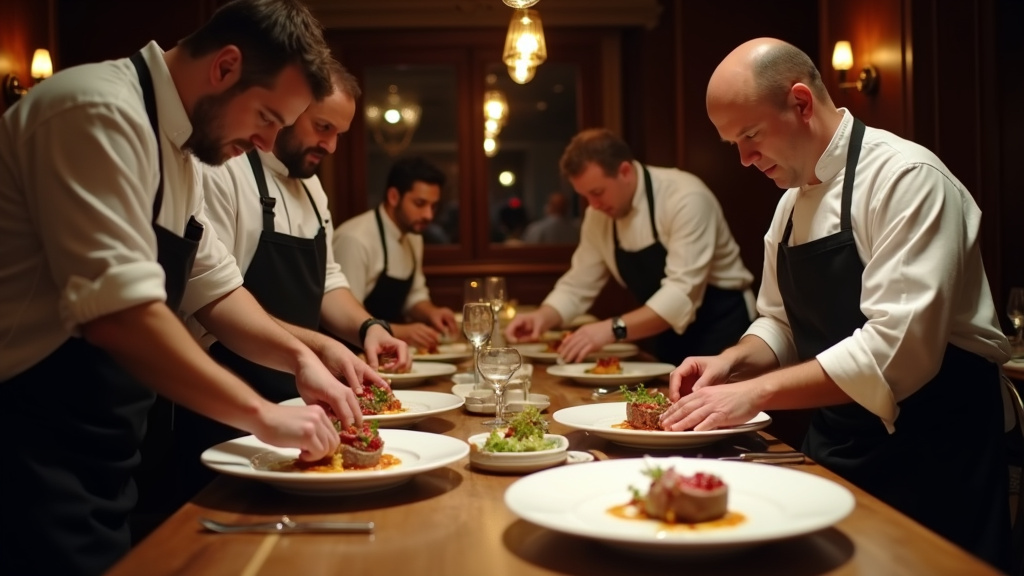In the bustling culinary landscapes of cities like Chicago, where vibrant food scenes thrive, the way one navigates a restaurant table can speak volumes about their upbringing. True class isn’t dictated by the price tag on the menu, but by a set of ingrained habits that demonstrate consideration, respect, and self-awareness. These aren’t flashy displays, but rather quiet, consistent actions that make the dining experience more pleasant for everyone, from fellow patrons to the dedicated restaurant staff.
These refined behaviors often go unnoticed by those who haven’t cultivated them, yet they are readily apparent to seasoned observers. They signal a deep-seated understanding of social graces, suggesting a foundation built on thoughtful upbringing rather than mere instruction. In essence, mastering these subtle dining habits can be a powerful, albeit unintentional, way to present a polished and considerate persona.
The Art of Respectful Interaction
One of the most telling signs of good manners is how individuals treat the people serving them. Classy diners understand that restaurant staff are professionals providing a service, not mere attendants. This respect is often shown from the moment they enter, with a warm greeting to the host and a polite acknowledgment of their server. They learn names and use them lightly, turning a transaction into a brief, human connection, which can make the entire dining experience smoother for everyone.
Furthermore, ordering food becomes an exercise in partnership, not a demand. Instead of making overly complex or last-minute modifications that burden the kitchen, those with refined manners inquire about specials or ask for clear, concise recommendations. They understand that a restaurant’s rhythm exists, and they aim to harmonize with it, ordering thoughtfully and efficiently, especially during busy periods.
Consideration for the Shared Space
Beyond direct interactions, awareness of the surrounding environment is paramount. Speaking in a modulated tone, avoiding disruptive phone conversations, and keeping devices out of sight are hallmarks of someone mindful of others in the dining room. This extended to personal space as well. Reaching across a table for an item, rather than politely asking for it to be passed, signals a lack of consideration. Similarly, maintaining a tidy footprint – ensuring stray crumbs or spills are managed discreetly – shows respect for the shared dining space and the staff who maintain it.
Grace Under Pressure and Personal Demeanor
Even when things don’t go perfectly, good manners shine through. Treating a mistake – a delayed order, a misprepared dish – with grace, understanding it as a part of any operation, rather than a personal affront, reveals maturity. These individuals allow the restaurant team to address issues calmly, often by stating the problem warmly and letting them find a solution.
Basic table manners, often learned in childhood, remain critical. Chewing with one’s mouth closed, not talking with food in your mouth, and handling cutlery with a sense of ease rather than awkwardness, all contribute to a pleasant dining atmosphere. The proper use of a napkin – placed on the lap, used to dab, not wipe, the mouth – is another subtle cue that speaks to a cultivated upbringing.
The Nuances of Dining Etiquette
When it comes to the bill, a smooth exit is key. Discussing payment methods upfront or handling the check efficiently, without making the server perform complex calculations during a rush, demonstrates consideration for the restaurant’s operations. Tipping appropriately, reflecting genuine appreciation for the service received, is also a significant indicator of one’s understanding of social contracts.
In the fast-paced world of modern dining, these habits might seem quaint. However, the news from the restaurant industry and etiquette experts consistently highlights that these quiet displays of consideration are what truly elevate the dining experience. They transform a meal from a mere transaction into an occasion, reflecting not wealth or status, but a deep-seated respect for others and the art of gracious living.
Ultimately, these restaurant habits are more than just rules; they are expressions of empathy and respect that travel with you, making any dining experience, whether a quick bite or a formal affair in Chicago, a more enjoyable and civilized affair.















